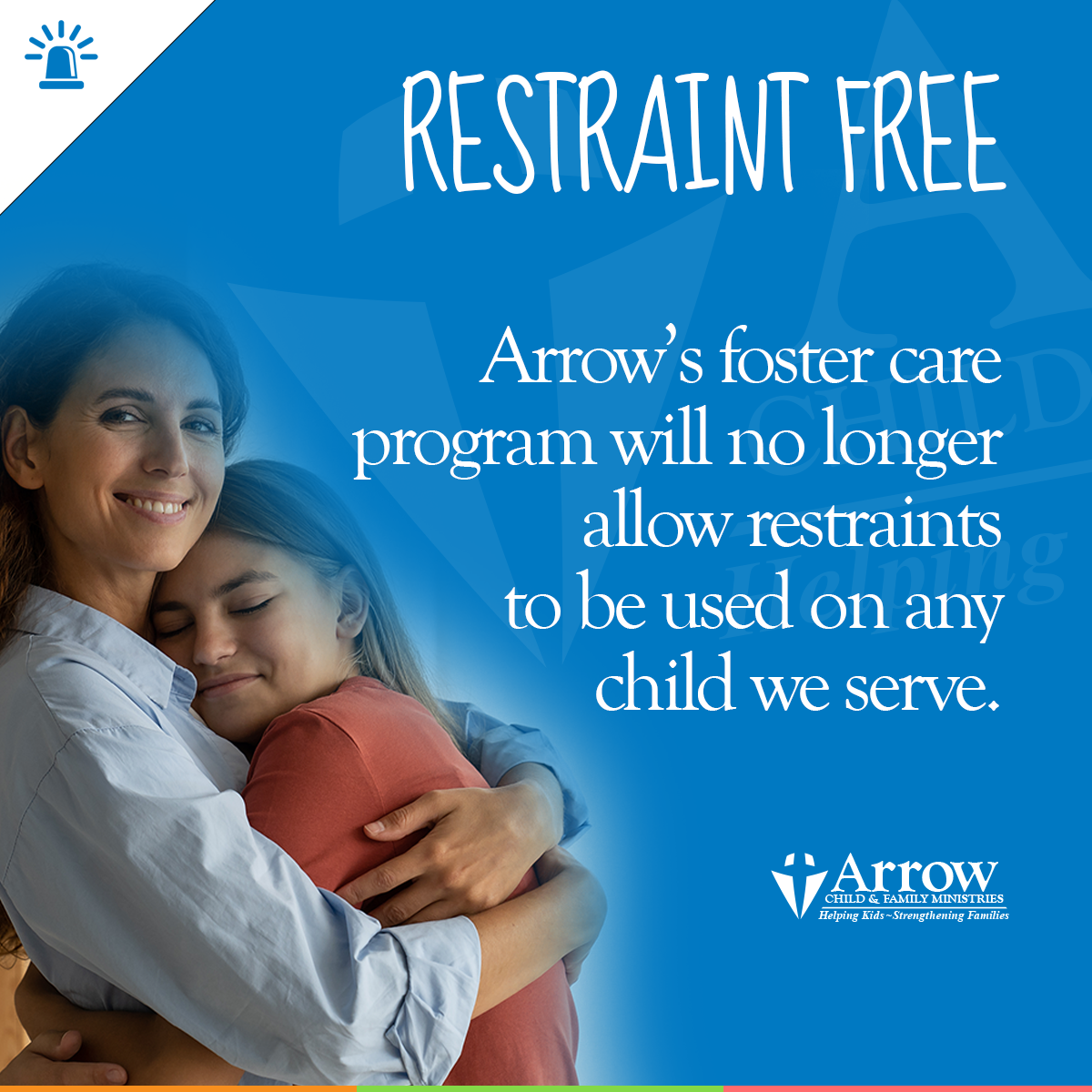During the summer of 2022, leaders in the Texas foster care program leadership started discussing the possibility of “going restraint free” in all foster homes we serve. After research on our current behavior intervention incident trends, as well as consulting with other child placing agencies that have made a similar decision, we have decided that effective 9/1/2023, Arrow’s foster care program will no longer allow for personal restraints to be used as an intervention on any child we serve. In an internal review of our data, we conduct very few personal restraints each year in both our traditional and treatment foster care programs. Armed with this knowledge, and the desire to create a more nurturing, safe, and trauma-responsive environment, we feel that it is best practice to move away from the use of restraints. Additionally, after a review of national data on restraints, the Cornell Chronicle noted “79 deaths as a result of restraints over the last 26 years”. Additionally, we have had foster parents and youth injured during restraints further determining the desire to move away from this restrictive practice. After careful consideration of this, we have determined that we will prohibit the use of personal restraints in the Arrow CPA (Child Placing Agency) and will transition away from this practice by September 1, 2023.

While personal restraints will no longer be allowed, a “short personal intervention” as defined by the Texas Minimum Standards will be permitted. A short personal intervention lasts no longer than one minute before the child is released.
APPROPRIATE USES OF A SHORT PERSONAL INTERVENTION:
1. To protect the child from external danger that can cause imminent, significant risk to the child. An example of this is attempting to run into a busy street.
2. To intervene when a child, under the age of 5, demonstrates disruptive behavior, if other efforts have failed. For you, our foster parents, we want you to know that we will continue to support you in any way necessary. We are increasing our referrals to our targeted case management program, BHS, and can also utilize them for additional crisis intervention needs.
If you are current on your BCMT training, you will not need to take updated training until you are due. However, please understand that as of 9/1/23 we no longer allow restraints to be used, therefore the “holds” portion of BCMT is null and void. Lastly, each of you will be asked to sign an updated acknowledgment reflecting this change in August and September, when you see your case managers for home visits.
We know that this is a significant practice change, but we believe it is the best course of action. We will continue to partner with you and address individual concerns as needed. Do not hesitate to reach out to me if we need to schedule a time to discuss this decision in further detail. I appreciate each of you, the commitment to the children we serve!



